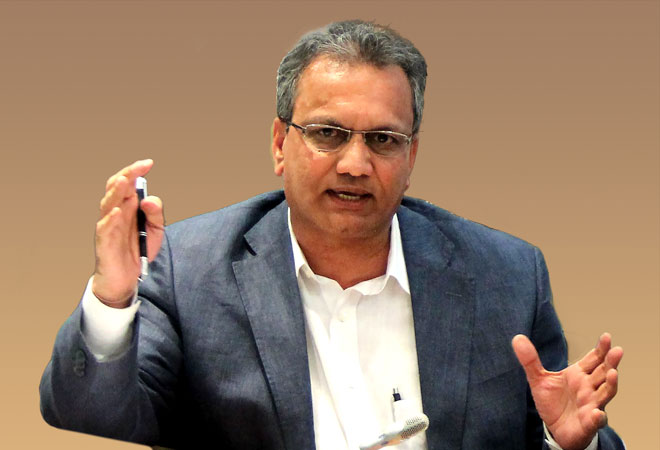Want to help SMEs create 10 million jobs: Ajay Kela of Wadhwani Foundation
Ajay Kela, CEO & President, Wadhwani Foundation, is looking to create job opportunities and place 25 million people over the next five years. In his recent visit to Delhi, he interacted with Shamni Pande of Business Today about the blue print to achieve the ambitious target.

Q. What is the road map proposed for skill development and employment by Wadhwani Foundation?
A. It is a five-year road map and our objective is large-scale job creation and skill development. Within these two broad areas, we expect the government to invest 10 times more. Ultimately the goal is of placing 25 million people in next five years. Our target is to create jobs that will at least provide family supporting wages and beyond. We are talking about jobs that are well above Rs 7,000 per month.
We typically start with young people who are finished their 10th and 12th grade and go up to post graduate and doctoral level. We are looking at job creation for college student and to get them to look at entrepreneurship . At each of these levels, different intervention is required.
Q. Today, skill developers are talking more about entrepreneurship rather than relying on big companies to absorb trained talent. What is your take?
A. Entrepreneurship is our oldest programme we started a decade ago, when this was not in vogue, most colleges did not talk about it. We were aware that to reap the demographic dividend, one could not rely on big conglomerates such as Tata, Aditya Birla , or the Reliance Group alone, to create jobs. Elsewhere, majority job creation happens through smaller ventures. Most companies try to grow by increasing productivity and not by adding new people, so we wanted bring the Silicon Valley mindset.
Today things have changed and many bright students want to create companies. We started with IITs and IIMs and they became founding partners and the goal was to educate and inspire students to get into entrepreneurship. We have trained 3,200 faculty across 500 institutes where they can teach entrepreneurship. As a subset, we set up entrepreneurship clubs and supported them to set up campus companies. For example, Mount Carmel College in Bengaluru involved a programme by students to start a chalk manufacturing unit in the campus to supply this for campus need. This way, they got first-hand experience to run a company. We are now have run-rate where 1,000 companies are started by students every year. These are actual companies and not campus companies.
About three years ago we found more students starting companies, and felt it was important to ensure their chance of success, as many were by first generation entrepreneurs; besides the financial eco-system is weak without too much policy support. Now, we have shifted focus to support entrepreneurs as institutes have a rhythm of their own. We set up mentoring network and financial network. The angel network is still not strong and most angels behave like VCs. But for many high net worth individuals (HNIs), Rs 25 lakh is play-money and they don’t have knowhow about whom they should support, or how to go about it. We have a short-term partnership with Kotak and IIFL as they have wealth management units and were able to tap into their network for presentation. Our plan to train up to 10,000 HNIs across the country about avenues to invest and we are building a platform where we can connect them to entrepreneurs and they become motivated mentors. On an average, most of our companies create up to six jobs every year. That is about 10,000 to 40,000 jobs, and we need to scale this up and work with the Ministry of Skill Development and we already have 400 mentor network. So why not do this in 5,000 colleges and we need to leverage technology. We are creating Moocs (massive open online courses) for Indian entrepreneurs, for students to become entrepreneurs, for angel investors, and so on.
Entrepreneurship plays a critical role to accomplish our target of job creation for 25 million people. We expect the first generation entrepreneurs to account for five million jobs. That is not difficult as college students and other young people are getting inspired to start their own ventures.
Q. What are the other areas of focus?
A. The other bucket where India is dramatically under served is in the SME space. The country has 50 million SMEs. Up to 98 per cent of these have 10 employees or less. We want to provide intervention to such enterprises, so that they can scale their operations to suck up more employees. The US has many food chains such as McDonalds and Burger King among others. But India has only a few national chains such as Café Coffee Day. In our first-year plan, we are looking creating an ecosystem in five cities to study demand and then understand their challenges in terms of access to market, mindset issues, government policy, etc. Our plan is to initiate strategies whereby SMEs will contribute up to 10 million jobs.
The third bucket is around skilling. All training should be provided in schools and colleges such that no large corporation should feel the need for campus training, the kind that Infosys has in Mysore. After all, companies are in the business of running their own business and not in the business of training. And students too want to work on real jobs and not go for further training. Thus, we need to fix the skill gap between academia and industry for companies can grow a lot more rapidly. Through this effort we are trying to bring another 10 million into jobs.
Q. What is the support you will get for your committed investment of Rs. 600 crore for job creation?
A. We are going to invest Rs 600 crore, but this is provided the government puts in 10 times this amount towards the stated objective as well.
In effect, our foundation drives job creation and skill development here through five initiatives that include National Entrepreneurship Network (NEN), Skill Development Network (SDN), Opportunity Network for Disabled (OND), Research and Innovation Network (RIN) and Policy. We work on these in association with the governments, corporates and education institutes.




